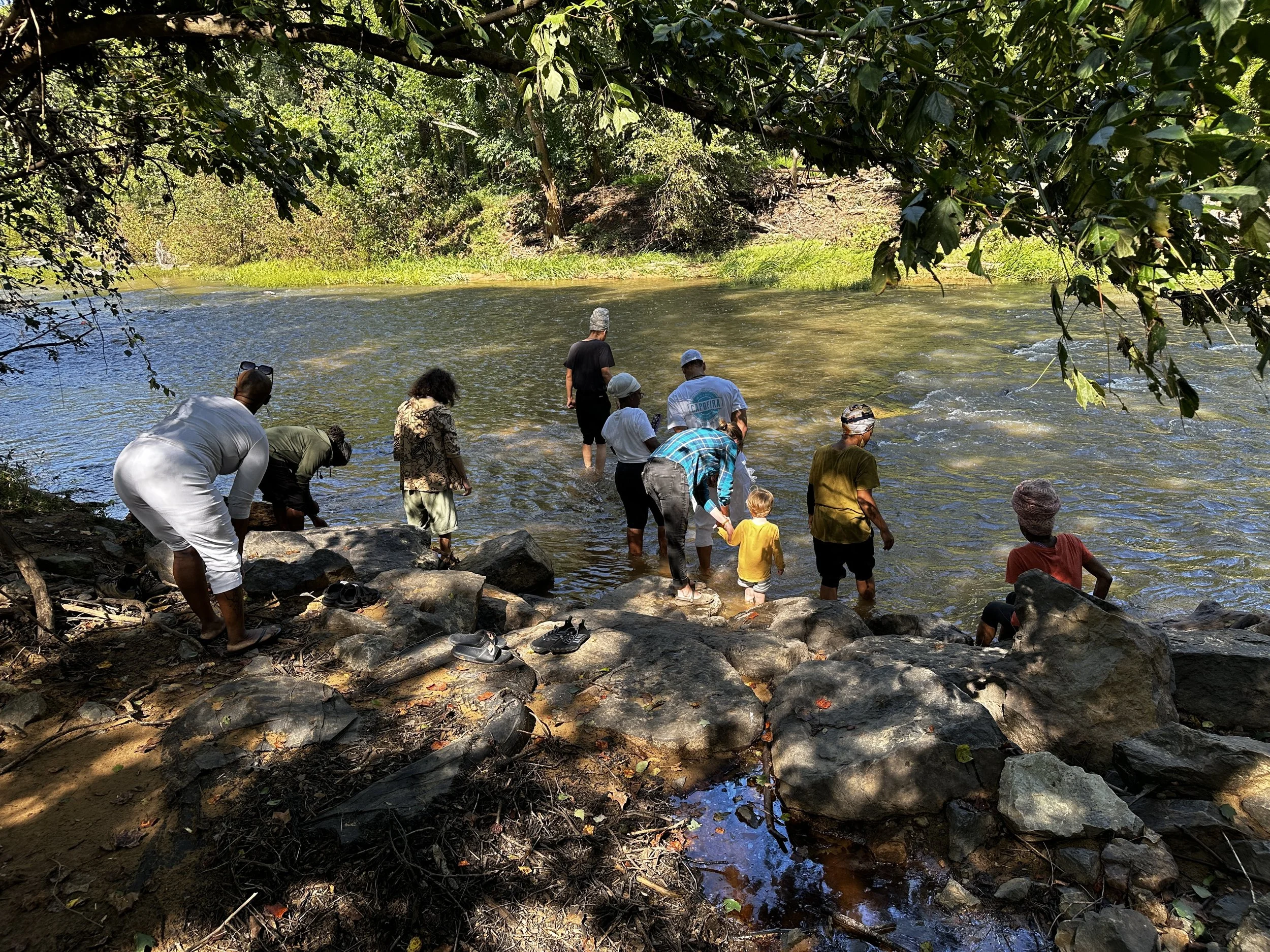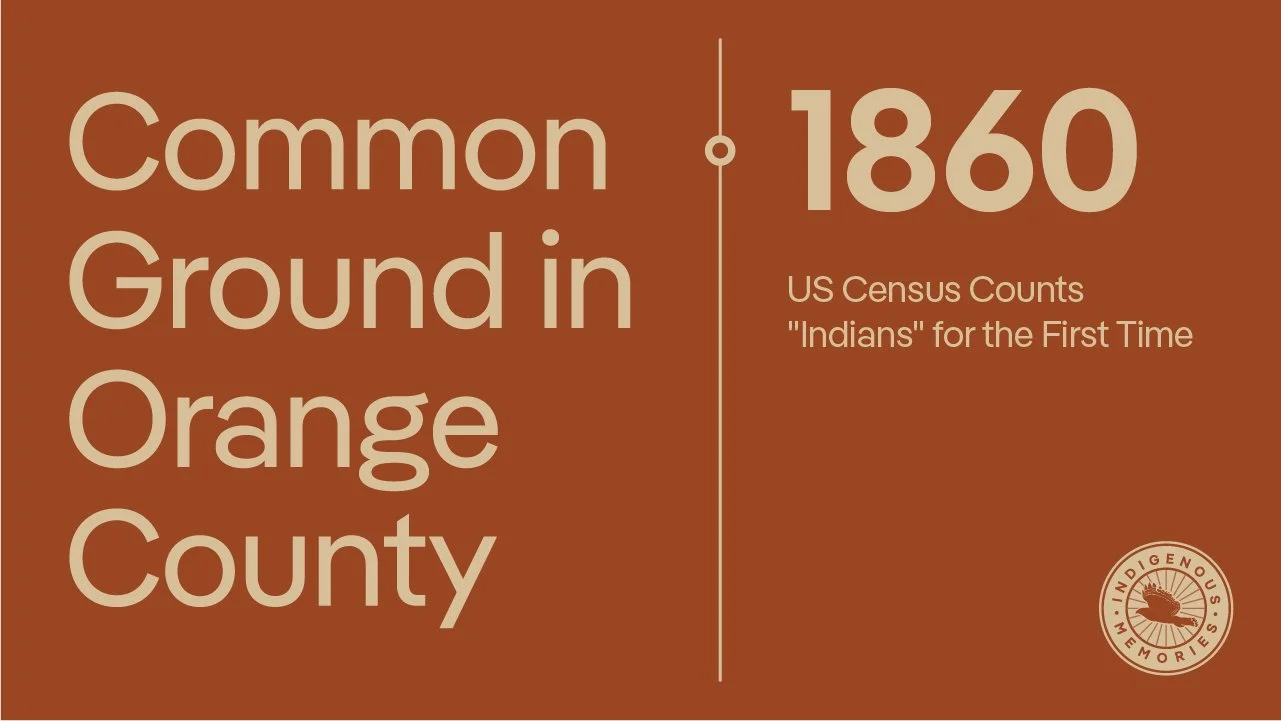
1860
US CENSUS COUNTS “INDIANS” FOR THE FIRST TIME
The 1860 United States Census marked a turning point in the nation's understanding, albeit limited, of its Indigenous population. For the first time, the census attempted to count "taxed Indians," those living outside of formal tribal relations or reservations, interspersed within the broader American society.
The count of 44,021 "taxed Indians" was a fraction of the estimated 300,000 Indigenous people residing in the country – offering only a glimpse into the lives of those navigating a complex and often hostile world. The census instructions directed enumerators to identify "Indians" who were "found mingled with the white population" or "living in huts or wigwams on the outskirts of towns or settlements."
This language reveals the prevailing societal view of Indigenous people as existing on the periphery, outside the boundaries of mainstream American life. While the Occaneechi people were connected to Hillsborough, using its post office, attending court, and even residing in the poorhouse, an exact count for Orange County remains elusive. The available evidence suggests that the number of "taxed Indians" officially recorded was likely very small.
The Occaneechi, who had maintained a presence in the Hillsborough area since the late 17th century, found themselves increasingly categorized as "colored" or "mulatto" in official records, a reflection of the South's rigid racial hierarchy and the erasure of their distinct indigenous heritage.
That 1850 census includes an entry for Littleton Jeffreys, an Occaneechi man listed as “mulatto” and residing in the Hillsborough poorhouse. His presence in the poorhouse speaks to the economic vulnerability and social marginalization that the Occaneechi people experienced.
The census, in its attempt to categorize and quantify, often failed to capture the nuances of identity and the lived realities of the Occaneechi. The pressure to assimilate, adopt European customs, and abandon traditional ways was immense. The census, with its focus on "taxed Indians" living amongst the white population, exemplifies this pressure.
Despite the challenges, the Occaneechi persisted, maintaining connections to Hillsborough through legal and economic activities and, most importantly, through the enduring bonds of community and shared heritage.
Featuring Indigenous Memories Consultant, Lawrence Dunmore III


